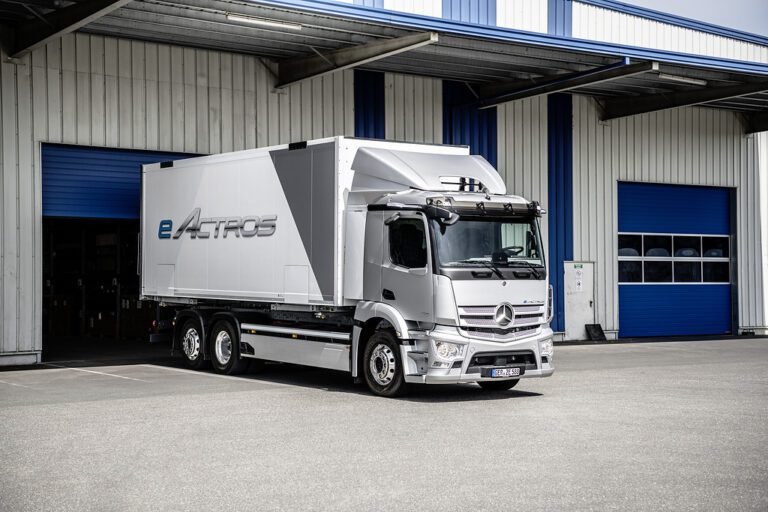Volvo Group, Daimler Truck and Volkswagen AG’s TRATON Group plan to spend $593 million to install and operate 1,700 commercial truck charging stations in Europe by 2027.
Creating charging infrastructure for heavy-duty and long-distance electric trucks and buses is the goal of the non-binding agreement announced on Monday by Europe’s three largest truck manufacturers.
“The common goal of European truck manufacturers is to achieve climate neutrality by 2050. However, it is important that building the right infrastructure goes hand in hand with putting CO2-neutral trucks on the road,” Daimler Truck CEO Martin Daum He said in a press release.
“This will be the big bottleneck,” Daum told Reuters. The Stuttgart, Germany-based manufacturer expects to separate from Daimler AG, also the parent company of Mercedes-Benz passenger cars, by the end of the year.
There is no similar agreement in the United States. Daimler Trucks North America in April opened an electric truck charging island near its headquarters in Portland, Oregon. So far, this is the only public charging system run by companies.
It sells the brands DTNA, Volvo Trucks North America and PACCAR Inc. (NASDAQ: PCAR) brands Peterbilt and Kenworth charging stations for private use. TRATON’s Navistar brand does not offer an electric offering yet. The first, a medium-duty model, will go into production in 2022.
The joint venture is expected to be signed by the end of 2021
The European agreement expects the formation of a joint venture by the end of the year, in which each of the three companies will have an equal share. The plan aims to establish high-performance green energy charging points close to highways, as well as at logistics and destination points, within five years.
It is planned that the future joint venture will operate under its own corporate identity and be based in Amsterdam. It will act as a catalyst and enabler to achieve the EU Green Deal for zero-carbon freight transport by 2050. The charging network will be available to all commercial vehicles in Europe, regardless of brand. It is expected that outsiders will expand the network once it is established.
“In order to accelerate further, we need additional partners, additional networks and public funds,” Lundstedt said.
Volvo was the first company to produce electric trucks in Europe, and is expanding into battery-powered construction equipment. After three years of testing, Daimler began production of its eActros heavy truck last Wednesday. It was initially sold in Germany, Austria, Switzerland, Italy, Spain, France, the Netherlands, Belgium, Great Britain, Denmark, Norway, and Sweden.
The Daimler-Volvo fuel cell electric truck follows the JV
In a separate move, Daimler and Volvo earlier this year finalized a joint venture to manufacture and sell hydrogen fuel cell electric trucks and stationary power units under each brand. Volvo paid Daimler approximately $700 million for 50% of the joint venture called Cellcentric.
“We are laying the foundation for significant progress for our customers to transition to electric vehicles,” said Martin Lundstedt, President and CEO of Volvo Group.
Volkswagen, which has committed to spending billions on electric infrastructure globally in the wake of the Dieselgate scandal — the secret disabling of pollution control devices in diesel vehicles — runs entirely on electricity.
“This requires the rapid development of publicly accessible charging points, especially for long-distance heavy transport,” said Matthias Gründler, CEO of the TRATON Group, adding that approximately $12 billion will be needed to build electrical infrastructure in Europe by Year 2050.
Europe needs up to 15,000 high-performance public and destination charging points no later than 2025, and up to 50,000 high-performance charging points no later than 2030, according to a May 2021 report by the Association of European Automobile Manufacturers.
Related articles:
Daimler and Volvo reach a fuel cell agreement
Truck-focused Electric Island Charging site opens in Portland, Oregon
Biden makes trucks part of electric vehicle charging station plan
Click for more FreightWaves articles by Alan Adler.





